
The benefits of learning to express emotions healthily
Exploring the Dynamics of Emotional Expression
Emotions, those invisible yet potent forces that shape our thoughts, actions, and relationships, play a critical role in our lives. Learning to express emotions healthily can significantly impact our mental health, relationships, and physical well-being. This article delves into the multifaceted benefits of emotional expression, offering insights and strategies for improving this essential skill.
The Importance of Expressing Emotions
Why is expressing emotions important?
Expressing emotions plays a vital role in our mental and emotional health. It allows us to understand and process our own feelings, fostering greater self-awareness about what we need and value. When we share our emotions with others, it enhances emotional intelligence — our ability to navigate social situations and respond with empathy.
Healthy emotional expression strengthens communication within relationships. It builds trust and intimacy by showing our authentic selves and allowing others to connect with us on a deeper level. For children, learning how to express feelings supports emotional development and resilience, enabling them to handle social interactions more effectively.
Expressing emotions also acts as an outlet to prevent feelings from festering or becoming overwhelming. Suppressing emotions can lead to stress, anxiety, or physical health issues like high blood pressure. In contrast, acknowledging and sharing feelings can reduce these risks, lowering stress and fostering a sense of relief.
Furthermore, emotional expression helps others respond with compassion and support, creating an empathetic environment. This mutual understanding can deepen bonds and improve social support networks. Overall, openly expressing emotions contributes significantly to mental well-being, healthier relationships, and a more compassionate society.
The Mental Health Benefits of Emotional Expression
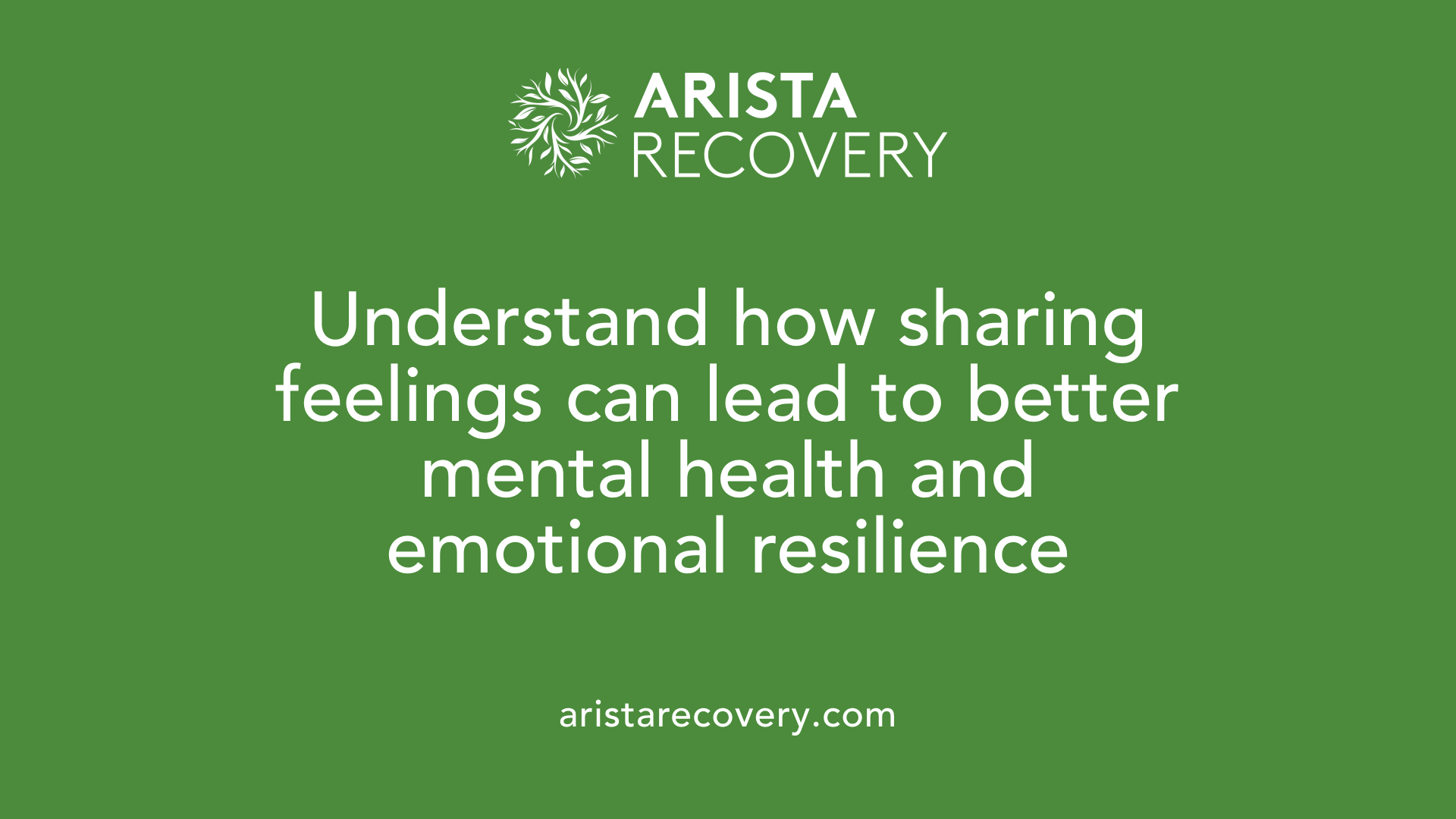
How does expressing emotions impact mental health and well-being?
Expressing emotions is fundamental for maintaining mental health and overall well-being. When individuals acknowledge and share their feelings, especially in safe environments, they gain important insights about their inner experiences. This process helps clarify what they need, fosters stronger personal relationships, and builds emotional resilience.
Healthy emotional expression acts as a release valve, preventing feelings from becoming overwhelming or festering inside the mind and body. Suppressing or avoiding emotions can lead to increased anxiety, depression, and even physical health issues like chronic pain. For example, studies show that unexpressed emotions may elevate stress hormones, weaken the immune system, and contribute to cardiovascular problems.
Practicing mindfulness and developing emotional awareness can support effective regulation. Techniques such as the RAIN method—Recognize, Accept, Investigate, and Non-identification—encourage individuals to observe their feelings without judgment. This fosters acceptance and understanding of emotions as they arise, rather than fighting or denying them.
By actively expressing and processing feelings, people improve their self-awareness, which helps in making better decisions and managing stress more effectively. Increased emotional openness also deepens bonds with others, enhancing social support and reducing feelings of loneliness.
In summary, expressing emotions clears emotional buildup and offers pathways to healthier mental states. It promotes a balanced life, more meaningful relationships, and a happier, more resilient self.
| Aspect of Emotional Expression | Impact on Mental Health | Additional Notes |
|---|---|---|
| Processing feelings openly | Reduces anxiety and depression | Encourages awareness and acceptance |
| Suppressing emotions | Increases stress and risk of illness | Can lead to emotional numbness |
| Healthy expression methods | Enhances emotional regulation | Includes journaling, therapy, sharing |
| Social sharing | Strengthens relationships | Builds empathy and understanding |
| Self-awareness through expression | Better decision-making and resilience | Supports personal growth |
Understanding, accepting, and openly expressing what we feel nurtures mental health, helping us lead more balanced and fulfilling lives.
Advantages of Being Emotionally Expressive
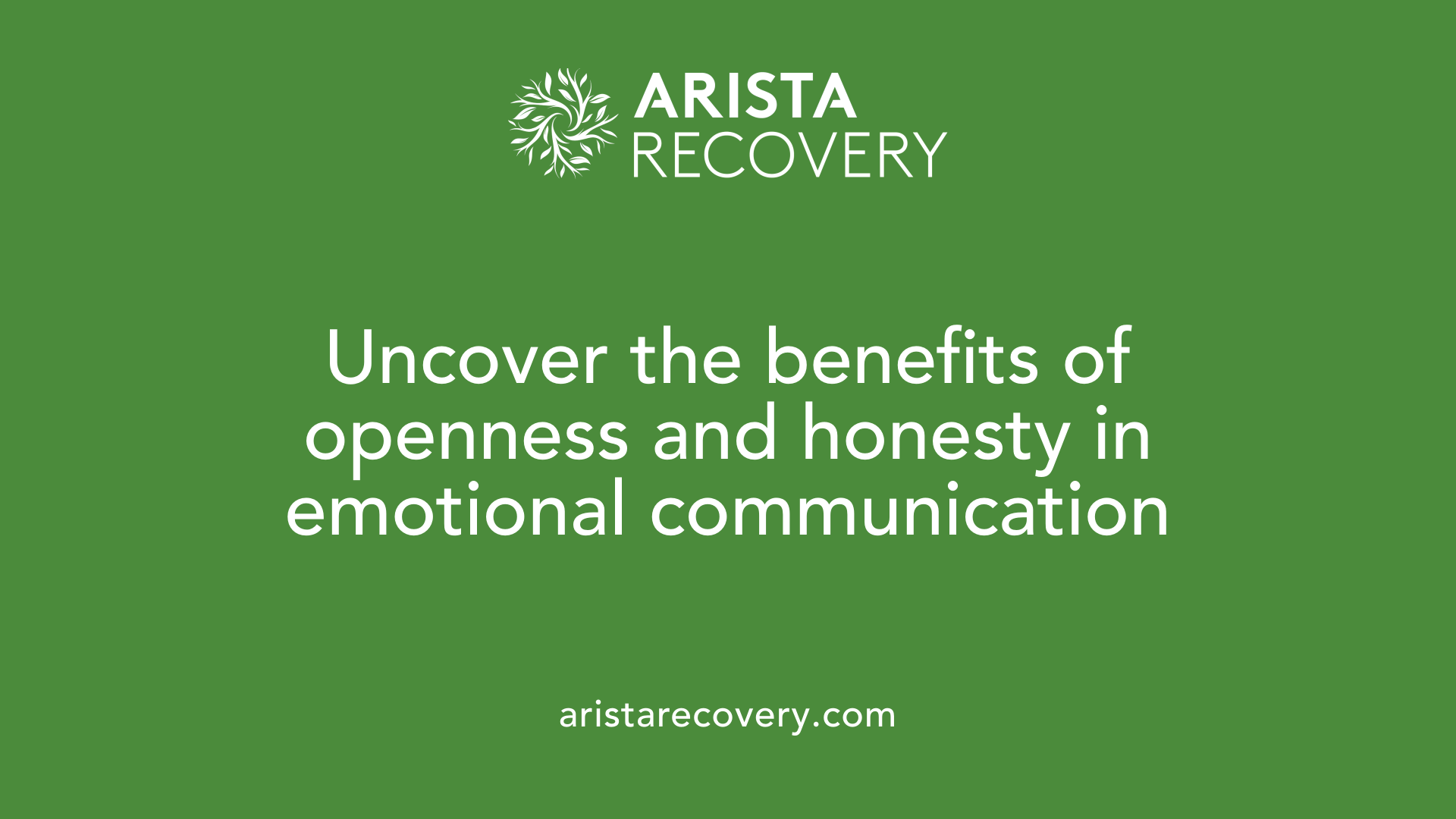
What are the benefits of being emotionally expressive?
Expressing emotions openly and healthily offers many advantages that contribute to overall emotional and mental well-being. One of the primary benefits is improved communication. When people share their feelings clearly, it helps avoid misunderstandings and builds trust in relationships. Authentic emotional expression acts as a bridge, allowing others to see the true self, which fosters deeper bonds and mutual understanding.
Being emotionally expressive also strengthens interpersonal relationships. It encourages intimacy and connection because sharing both positive and negative feelings can deepen trust and emotional bonds. When individuals express their emotions without fear of judgment, it creates a safe environment where others feel comfortable doing the same. This mutual openness helps develop resilience and better conflict resolution skills.
On a personal level, expressing feelings helps in processing and releasing difficult emotions like anger, sadness, or anxiety. This release reduces emotional heaviness and breaks negative cycles, such as suppression, which can lead to stress, depression, and physical health issues. By acknowledging and sharing emotions, individuals can increase their self-awareness, leading to better decision-making and emotional regulation.
In children, healthy emotional expression promotes trust and safety, teaching them to manage feelings effectively. It models positive behaviors that contribute to mental health and social development. Overall, embracing open emotional expression leads to a more fulfilling life, better stress management, and improved relationships — fostering growth both inwardly and outwardly.
Research on the benefits of emotional expressiveness highlights its importance, emphasizing that it helps people navigate social interactions more successfully and enhances their sense of connection with others. Cultivating this skill not only benefits individual health but also enriches personal and societal relationships.
For more insights, searching "benefits of emotional expressiveness for relationships" reveals how widespread the advantages are across different contexts and age groups. In essence, becoming more comfortable with expressing emotions unlocks the door to healthier, more genuine connections and personal growth.
Emotional Expression and Emotional Intelligence
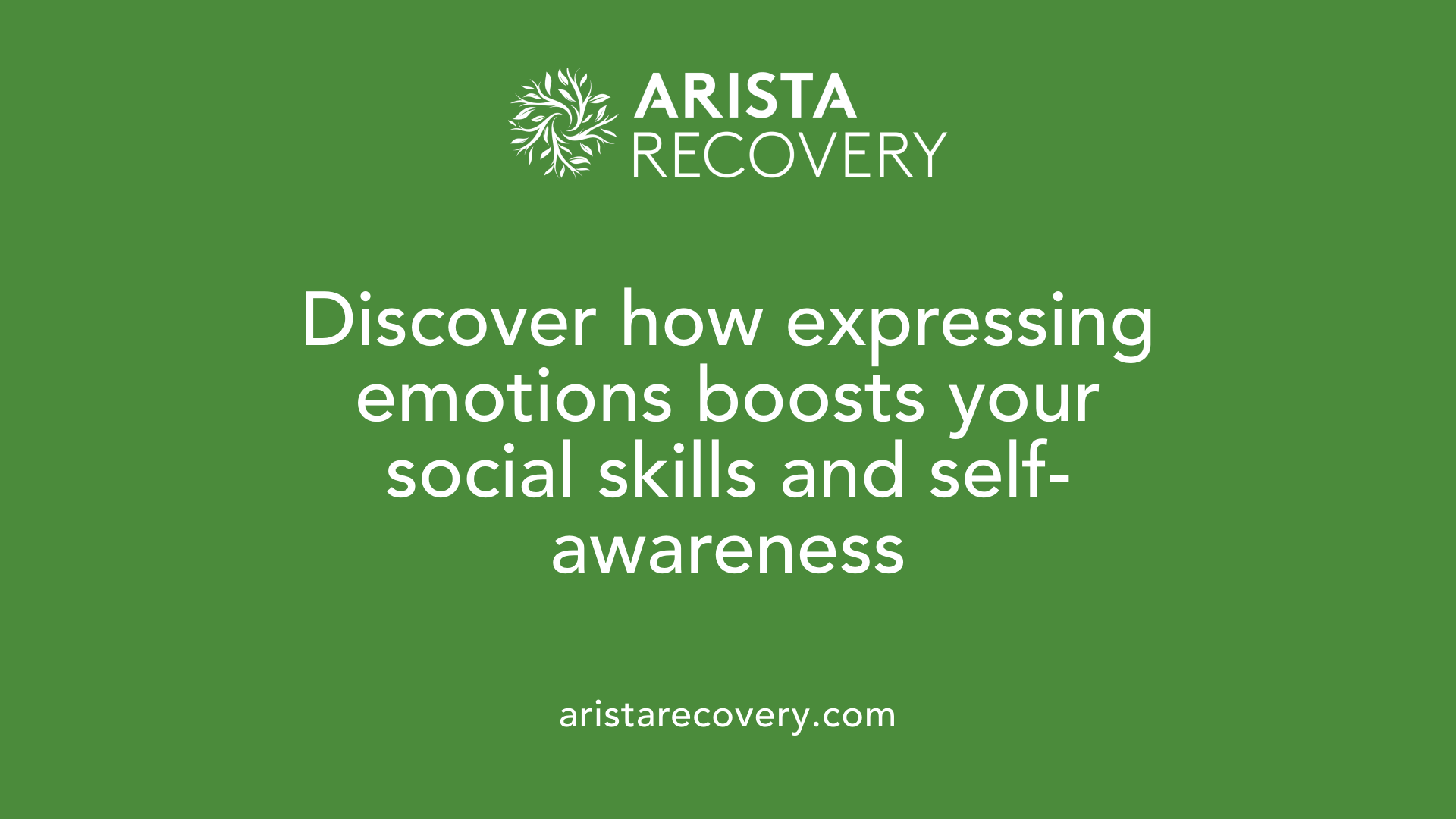
What is the role of emotional expression in emotional intelligence and self-awareness?
Emotional expression is a fundamental aspect of emotional intelligence because it allows individuals to convey their feelings clearly and authentically. When people recognize and articulate their emotions, they gain deeper self-awareness, which is essential for understanding their internal states and responding appropriately.
Expressing emotions helps in managing reactions, reducing the buildup of negative feelings like frustration or sadness. This openness also fosters empathy, as sharing feelings invites others to understand one's perspective, strengthening social bonds.
Self-awareness is enhanced when emotions are acknowledged rather than suppressed. By openly expressing feelings, individuals can identify what triggers certain emotional responses and learn to regulate them better.
Furthermore, emotional expression supports healthier communication, enabling clear and respectful dialogue. It prevents misunderstandings and conflicts that may arise from unspoken feelings or emotional suppression.
Overall, by serving as both a reflection of internal states and a tool for managing relationships, emotional expression plays a key role in developing emotional intelligence. It helps individuals navigate social settings more effectively, promoting personal growth and improving interpersonal connections.
Child Development and Family Dynamics
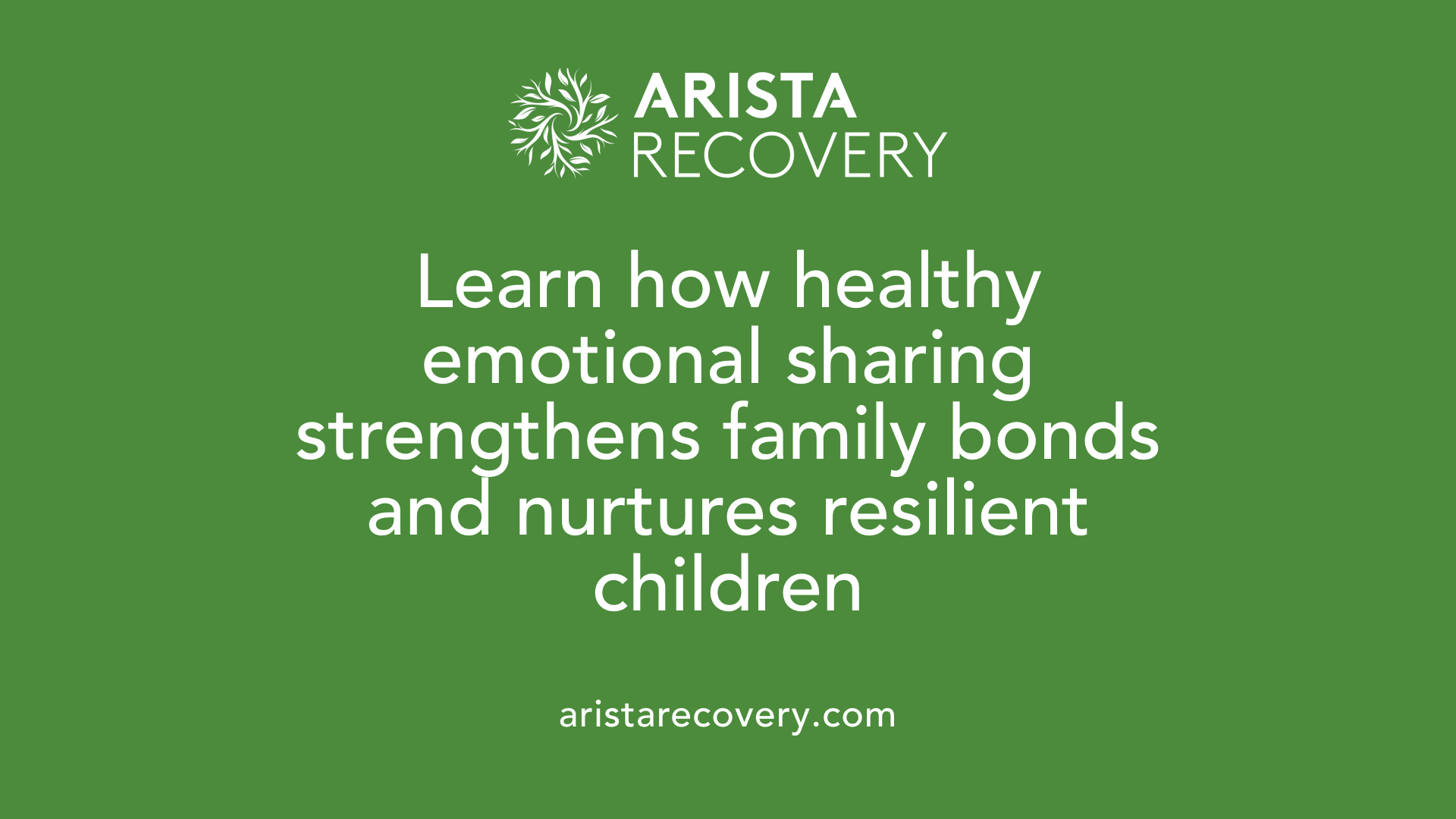
How does healthy emotional expression affect child development and family relationships?
Healthy emotional expression is fundamental to nurturing positive growth in children and fostering strong family bonds. When parents and caregivers openly and appropriately express their feelings, they set a powerful example for children, teaching them how to understand and manage their own emotions. This validation helps children develop emotional intelligence, which includes recognizing their feelings, empathizing with others, and forming secure attachments.
In a supportive family environment where emotions are acknowledged without judgment, children become more resilient, confident, and socially skilled. They learn to navigate conflicts better and communicate their needs effectively. This fosters a relationship built on trust and respect, making family interactions more harmonious.
Conversely, when families dismiss or punish emotional expression, children may suppress their feelings, leading to emotional difficulties, behavioral issues, or poor social interactions. Modeling healthy emotional responses also normalizes the experience of feelings like sadness, anger, and joy, helping children integrate emotions constructively.
Creating a safe space for emotional sharing within the family strengthens bonds and encourages open communication. Such environments reinforce the importance of emotional health, supporting children's overall development and nurturing healthier, more understanding familial relationships.
Here’s a quick overview:
| Impact Areas | Benefits of Healthy Emotional Expression | Additional Notes |
|---|---|---|
| Child's emotional regulation | Better understanding and management of feelings | Fosters independence and resilience |
| Social skills | Improved empathy and cooperative behaviors | Essential for positive peer interactions |
| Family relationship strengthening | Increased trust, closeness, and open communication | Supports overall family well-being |
| Mental health of children | Reduced anxiety and depression, higher self-esteem | Protective factor against mental health issues |
In summary, nurturing positive emotional expression within families creates an environment where children develop vital emotional skills, which, in turn, foster healthier relationships and a stronger sense of self.
Techniques for Enhancing Emotional Expression
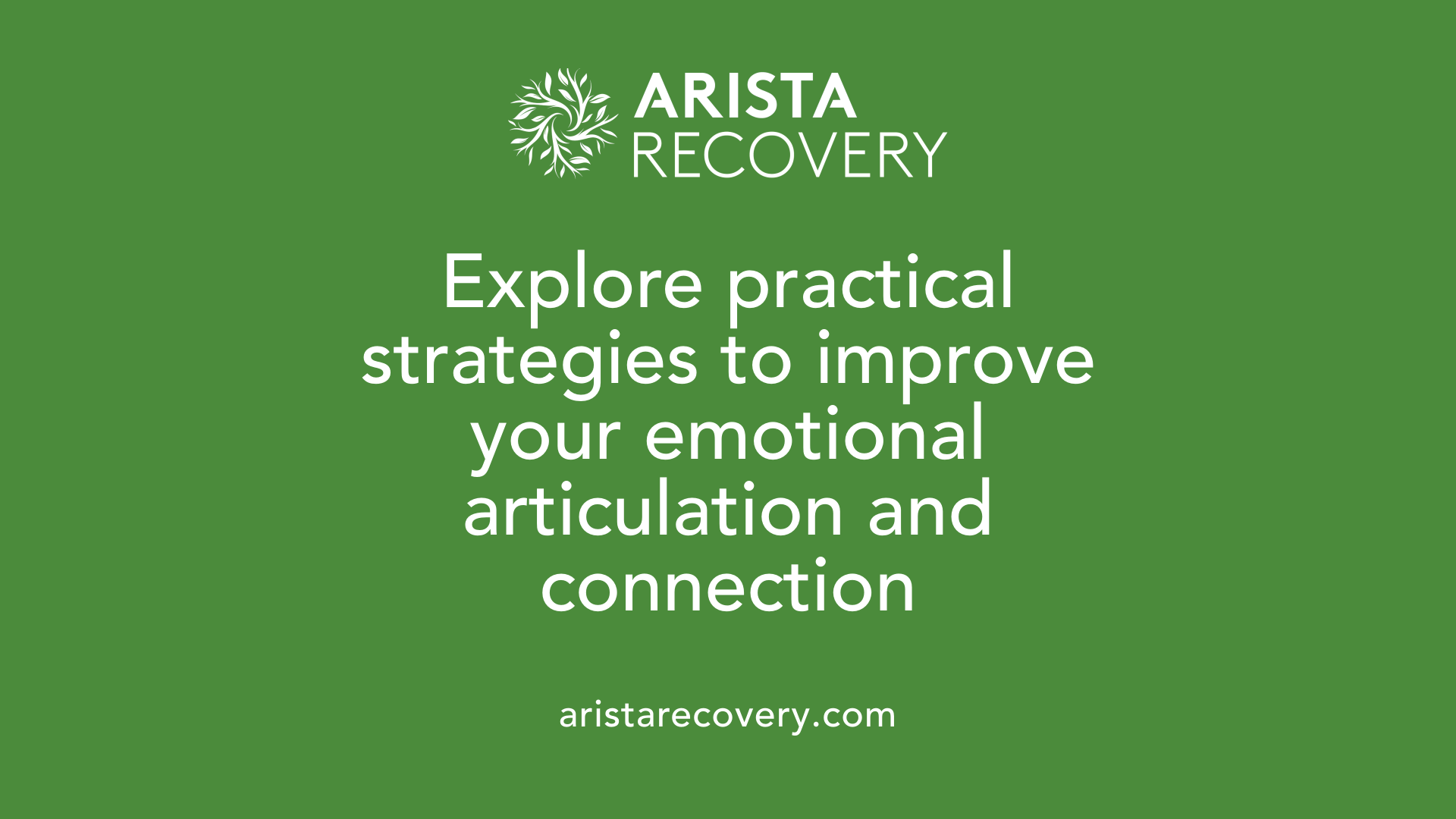
What are some strategies and techniques for improving emotional expression?
Enhancing emotional expression involves adopting various practices that foster self-awareness and effective communication of feelings. Mindfulness and meditation are foundational techniques that help individuals become more attuned to their internal emotional states, allowing for recognition and understanding without judgment. Regularly practicing these relaxation methods can also reduce stress and promote emotional regulation.
Expanding one's emotional vocabulary is another valuable approach. Utilizing tools like emotion wheels or feeling charts helps individuals better identify and articulate their feelings, which can often be complex or nuanced. Developing emotional literacy makes it easier to share emotions clearly and authentically.
Creative outlets serve as powerful channels for emotional expression, especially when words fall short. Engaging in art, music, writing, dance, or theater allows feelings to be expressed non-verbally, facilitating emotional processing and release.
Improving communication skills also plays a critical role. Using 'I' statements enables honest and respectful sharing of personal emotions. Active listening and validating others' feelings create a safe space for open dialogue, reinforcing emotional connections.
Creating a supportive environment—through therapy, group discussions, or trusted social circles—encourages vulnerability and ongoing emotional development. When people feel accepted and understood, they are more likely to express their feelings honestly.
In summary, combining mindfulness practices, emotional vocabulary expansion, creative expression, and effective communication techniques can significantly improve how individuals recognize, articulate, and share their emotions, thereby promoting mental well-being and healthier relationships.
Embracing Emotional Expression for a Healthier Life
Learning to express emotions healthily is a transformative skill that brings extensive benefits, from enhancing self-understanding and mental health to improving social connections and building family bonds. By cultivating emotional expressiveness, individuals can navigate the complexities of their emotional worlds more skillfully, contributing to resilience and overall well-being. As we recognize the power of emotions, adopting strategies to express and manage them constructively will become an essential part of a fulfilling and balanced life.
References
- Why is Emotional Expression Important?
- Why It's Vital to Identify, Process, and Express Your Emotions
- Benefits of Babies, Toddlers, & Preschoolers Expressing Emotions
- Benefits of Experiencing your Emotions - Wild Tree Wellness
- The effects of interpersonal emotional expression, partner ...
- Importance of Expressing Your Emotions - Bayridge Counselling
- How to Express Emotions: 12 Ways to Communicate Feelings
- The Benefits Of Expressing Your Emotions - Forbes
When mental health challenges and addiction intersect, it can feel isolating. At Arista, we offer compassionate, evidence-based, and trauma-informed care to help you heal, grow, and move forward.
You’re not alone in this.
When mental health challenges and addiction intersect, it can feel isolating. At Arista, we offer compassionate, evidence-based, and trauma-informed care to help you heal, grow, and move forward.
Support that moves with you.
You’ve taken a brave first step. At Arista Recovery, we’re here to help you continue with best-in-class care designed for long-term healing and support.
.webp)






